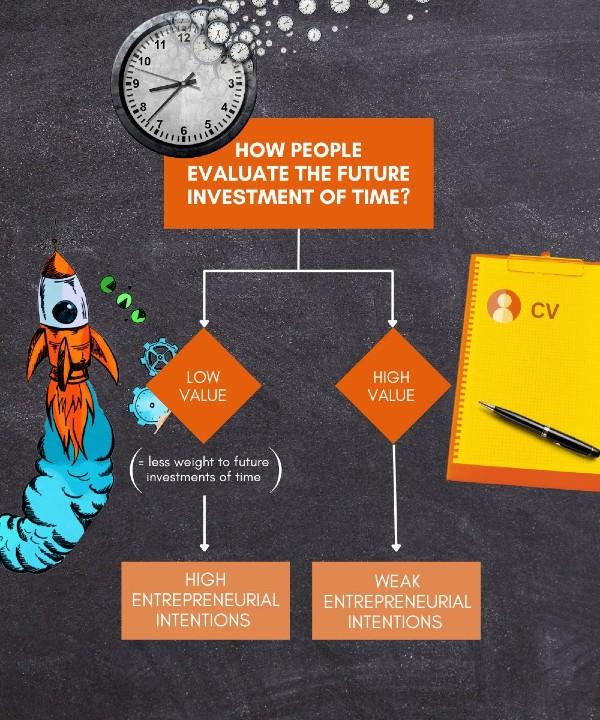
Time Is not Money for Startuppers. That's Why They Go for It
The way in which individuals value the future relative to the present may be an important driver behind the decision to become an entrepreneur. Those who think of the future as something very far away, and therefore less valuable now, are more likely to start a business than those who think otherwise, a new paper found.
Cédric Gutierrez, of Bocconi's Department of Management and Technology together with Randolph Sloof of the University of Amsterdam and Donal Crilly of the London Business School, in their article "Time Is Not Money! Temporal Preferences for Time Investments and Entry into Entrepreneurship", investigate the perceived value of time and money as one of the main drivers of entrepreneurship. They thus introduce a behavioral dimension into a research topic previously dominated by purely financial considerations.
The decision whether to become an entrepreneur or not, typically framed as setting up your own business as opposed to working as a paid employee, is a crucial one in the life of a person. It is commonly assumed that working as an employee entails a more or less stable salary over an entire working life, while an entrepreneur will not make a profit immediately but stands to gain higher returns in the future. In this perspective, the two key variables are money earned and time invested, and more precisely their perceived value. We might think that entrepreneurs would be more patient than salaried employees: after all, patient individuals might be expected to pursue careers that offer the prospect of larger returns in the long run, like entrepreneurship, instead of more stable (but tendentially lower) wage alternatives.
This way of putting the matter, in practice, is centered on financial gain but leaves time, the other variable, in a secondary role. Gutierrez and his colleagues focused instead on how people evaluate the future investment of time. Entrepreneurs are, in fact, expected to work longer hours than employees in the future, but are nonetheless ready to venture into the new business. An entrepreneur would then more probably be someone who attaches a low value to future time, acting as if time were not money.
The authors tested their hypothesis on students from a well-known international business school who had varying levels of intention to become entrepreneurs but were otherwise similar, and they found that students with high entrepreneurial intentions discounted more heavily (ie, assigned less value to) future time investments than those with weaker entrepreneurial intentions. This first experiment was followed by two further studies, both featuring two different panels of respondents, one involving entrepreneurs and another employees. These studies confirmed the results of the previous one, with the interesting detail that startup founders discounted time investments more than established entrepreneurs.
"An important aspect of our results," says Cédric Gutierrez, "is that they have implications for policy. Recent years have seen a proliferation of entrepreneurship training programs. Incorporating elements related to time perception into entrepreneurial training may affect intentions, eventually leading to venture creation. Business planning programs may foster a long-term perspective and influence temporal preferences, which may be detrimental to entrepreneurial intentions. Should we then push for higher emphasis on how to assess the current value of investing time, with the risk of having fewer entrepreneurs?"
Cédric Gutierrez, Randolph Sloof, Donal Crilly, "Time Is Not Money! Temporal Preferences for Time Investments and Entry into Entrepreneurship", Organization Science, published online 16 May 2023, https://doi.org/10.1287/orsc.2023.1681